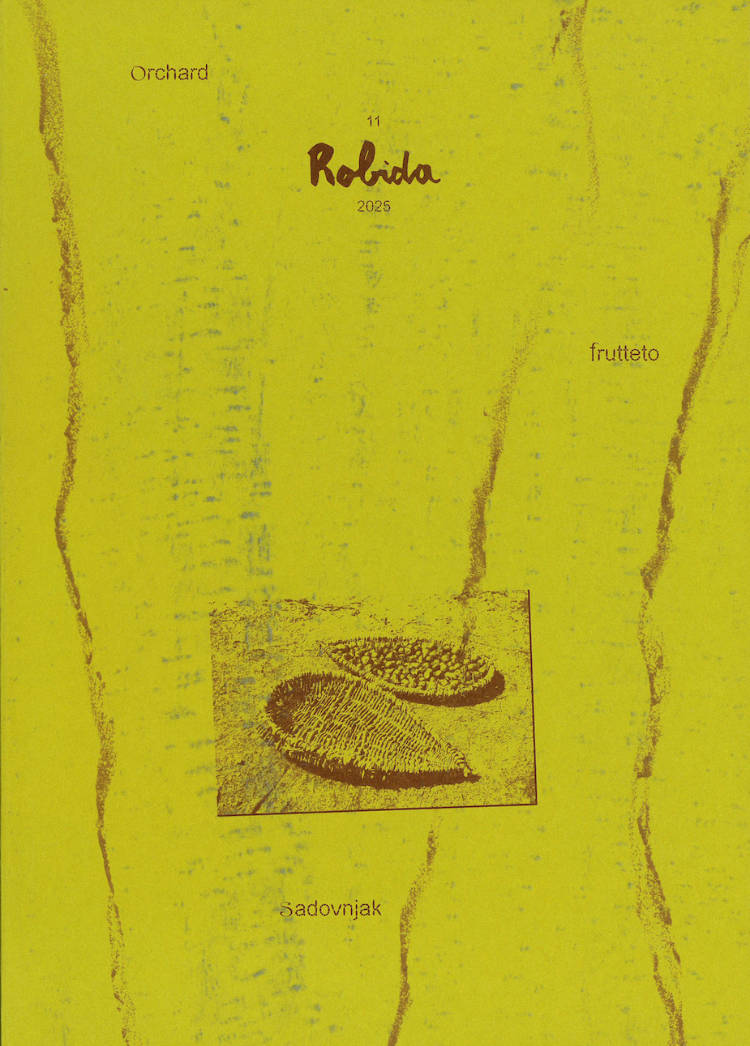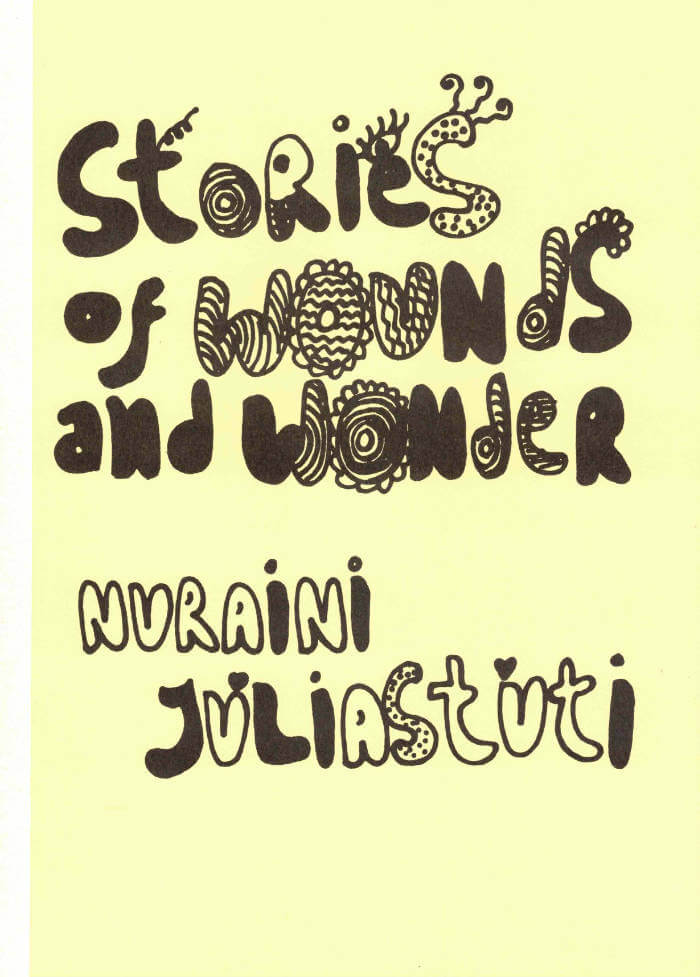
Robida 9
Robida ed.
Robida is a situated, multilingual cultural magazine published by Robida collective. Each issue explores a topic connected and generated by Topolò/Topolove, the village on the border between Italy and Slovenia where the collective is based.
The chosen topic is thrown into the world and interpreted by people who have never been to Topolò. What people send back after the open call is not only a contribution to the exploration of a defined theme but also a new interpretational tool to explore the collective’s relation to Topolò.
The ninth issue of Robida magazine digs into soil, dirt, mud, earth, ground and compost, which are interpreted through six categories, each proposed by one editor of the magazine: symbolic, feminist, theoretical, dwelling, contaminated and tactile soils.
〰️
CONTRIBUTORS
Adriana Gallo, Alecio Ferrari, Aljaž Škrlep, Anaïs Tondeur, Angela Serino, Anna Lina Litz, antonisotzu, Antônio Frederico Lasalvia, Beatrice Zerbato, Benedetta Ciappini, Chiara Alexandra Young, Chiara Caredda, Diego García, Donatella Livigni, Dora Ciccone, Eduardo Makoszay Mayén, Eleanor White, Elena Ferrari, Elena Rucli, Emily Priest, Emmanuel Álvarez Sánchez , FAHR 021.3, Federico Bardelli, Federico Broggini, Francesca Lucchitta, Georgina Pantazopoulou, Germain Meulemans, Gijs de Boer, Giorgia Maurovich, Giulia Pompilj, Greta Biondi, Hannah Segerkrantz, How Melnyczuk, Jack Bardwell, Janja Šušnjar, jean ni, Laura Savina, Luca Scandurra, Lucia Fontanelli, Marianna Maruyama, Margherita Issori, masharu, Michael Marder, Naomi Oke, Ola Korbańska, Petra Filagrana, René Nissen, Rūta Žemčugovaitė, Silvia Marchese, Sofia Salvatori, Sasha van Aalst, Stefan Breit, Steffie de Gaetano, Stephanie Newcomb, Tina Alise Drupa, Toni Wagner, Tymon Hogenelst, Vida Rucli, Vittoria Rubini, Yiannis I. Andronikidis, Yvonne Billimore, Zuzanna Skurka.




